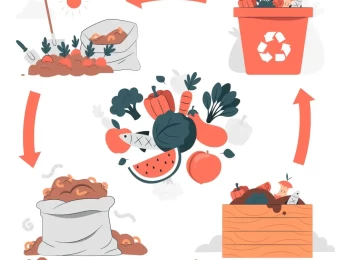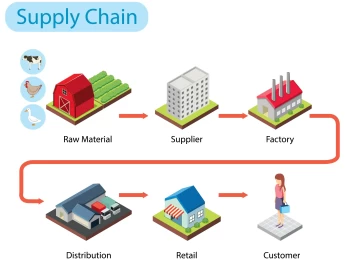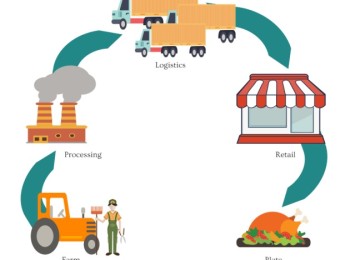The agricultural industry exists on a global level, and agribusiness is certainly included in that scale. For agribusinesses to remain successful, there must be a strong focus on developing consumer and business relations. With a positive relationship with consumers, the organisation will be able to generate community engagement and sell products as effectively.
Understanding consumer demands and wants is a crucial aspect of building consumer relations. Analysing buying behaviour trends can provide great insight into what consumers are more naturally drawn to and what products they need to be further influenced to buy. Knowing past and present trends also allows the business to predict future consumer trends and prepare to meet these demands before competitors.
Another vital aspect of consumer relations is community engagement. Particularly in the modern day, with the development of social media, consumers expect to be able to interact personally with the business on a more friendly level. An agribusiness that can communicate more personally will be guaranteed to generate more consumer loyalty.
Upon completion of this course, participants will be able to:
- Understand the importance of managing agribusiness and consumer relations within the agriculture industry.
- Assess the target consumers for individual products and services and explore how to address them best.
- Conduct regular market research to gain an understanding of present consumer trends.
- Utilise various methods of communication to engage with consumers and communicate their wants and needs.
- Acknowledge the consequences of poor consumer relations on the organisation.
- Manage relationships throughout the supply chain to ensure all processes are efficient.
- Analyse existing customer trends to accurately predict future trends and establish tailored action plans.
This course is designed for anyone responsible for managing consumer relations in the agriculture industry. It would be most beneficial for:
- Social Media Managers
- Sales/Marketing Directors
- Operations Managers
- Sustainability Advisors
- Agribusiness Consultants
- Communication Managers
- Community Engagement Specialists
This course uses a variety of adult learning styles to aid full understanding and comprehension. Participants will review case studies of established organisations to highlight key methods and aspects of their interactions with their consumers.
To guarantee the participants can develop a full understanding of the thought content, they will have the opportunity to partake in a variety of seminars, video materials, group discussions and role-playing activities. This ensures they can comprehend the knowledge and practise the related practical skills.
Day 5 of each course is reserved for a Q&A session, which may occur off-site. For 10-day courses, this also applies to day 10
Section 1: Introduction to Agribusiness
- Defining what agribusiness is, its necessity and importance within global food production.
- Identifying each aspect of agribusiness and understanding their specific purposes.
- What internal and external factors can influence the productivity of agribusinesses.
- Understanding the role the consumer plays within the agriculture industry.
- The corporate and social responsibility accepted by agribusinesses.
Section 2: Consumer Awareness and Demand
- Conducting extensive market research to generate a thorough understanding of consumer wants and needs.
- Analysing past and present consumer trends to understand how demands evolve over time.
- Utilising consumer data to predict future trends and prepare for them.
- Exploring what influences trends and using different methods to influence them in the organisation’s favour.
Section 3: Community Engagement
- Understanding the vitality of personally engaging with consumers.
- Merging traditional and modern marketing techniques to advertise products.
- Adapting to the world of social media – building consumer and business relationships made easy.
- Engaging in open and honest communication with consumers.
- Communicating one-on-one or with different communities about products.
- Dealing with conflict maturely and professionally to maintain business integrity.
Section 4: Crisis Management
- Conducting risk assessments throughout the organisation, including aspects of consumer relations.
- Analysing risk data to create a risk management plan detailing preventative measures and corrective actions.
- The purpose of crisis management – what social crisis may the business face?
- Remaining calm and collected during crisis – engaging with the community to offer reassurance.
Section 5: Transitioning to Sustainable Practices
- How sustainability can lead to a positive reputation.
- Consumer trends and demands being integrated within sustainable practices.
- Different methods of increasing agribusiness sustainability – recyclable packing, donating food leftovers, renewable energy and more.
- Engaging in community collaboration to improve sustainability practices.
Upon successful completion of this training course, delegates will be awarded a Holistique Training Certificate of Completion. For those who attend and complete the online training course, a Holistique Training e-Certificate will be provided.
Holistique Training Certificates are accredited by the British Assessment Council (BAC) and The CPD Certification Service (CPD), and are certified under ISO 9001, ISO 21001, and ISO 29993 standards.
CPD credits for this course are granted by our Certificates and will be reflected on the Holistique Training Certificate of Completion. In accordance with the standards of The CPD Certification Service, one CPD credit is awarded per hour of course attendance. A maximum of 50 CPD credits can be claimed for any single course we currently offer.
- Course Code IND10-104
- Course Format Classroom, Online,
- Duration 5 days













